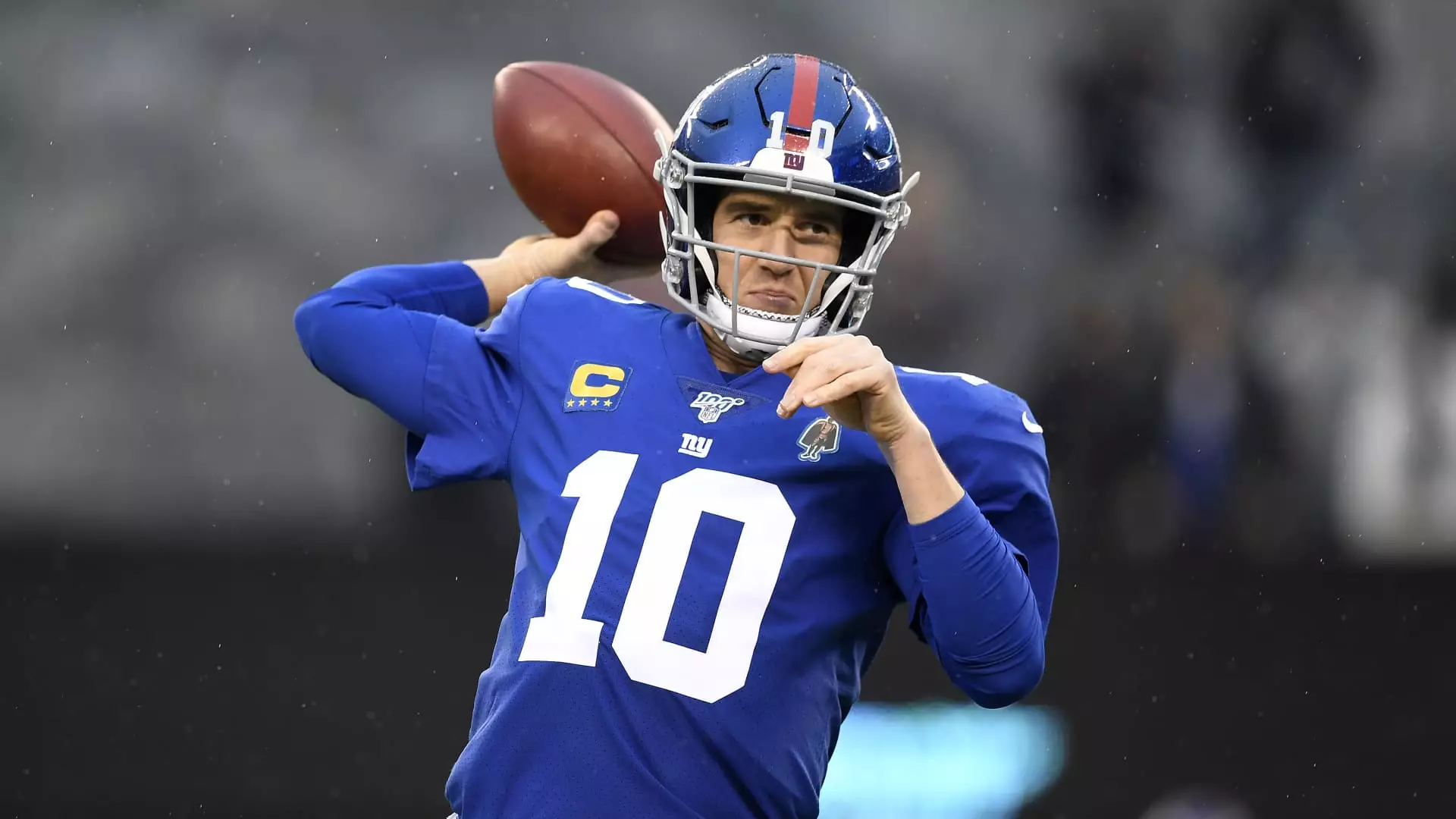In an age where billion-dollar valuations are the norm, the perception of wealth surrounding NFL franchises and other major sports teams often obscures reality. The fervor around team valuations reaching unprecedented heights—such as the New York Giants being valued at nearly $8 billion—lures even former stars like Eli Manning into the illusion that strategic investments are an attainable path to substantial wealth. Yet, beneath this glossy veneer lies a distorted understanding of true financial worth and the risks associated with overvaluation. These inflated numbers are not necessarily reflective of the genuine economic power of these franchises but are rather the result of market hype, speculative pricing, and the NFL’s unique position as a cultural institution with a passionate fanbase willing to accept sky-high prices. While such valuations might impress the casual observer or the media, it’s crucial to question whether they genuinely translate into sustainable, long-term riches or simply serve as illusions of grandeur.
The Overhyping of Franchise Values: A Shortsighted Bubble
The rapid increase in NFL and sports franchise valuations resembles a classic economic bubble, driven more by sentiment and brand value than by tangible assets or consistent cash flow. For instance, the recent stake sales in teams like the Philadelphia Eagles, San Francisco 49ers, and even the NBA’s Los Angeles Lakers showcase a market increasingly driven by investor speculation rather than fundamental economic fundamentals. When the Giants are valued at close to $8 billion, yet derive most of their revenue from local media rights, sponsorships, and ticket sales that are relatively stable, the inflated valuation seems more like a speculative gamble than a sign of intrinsic worth. The danger here is that investors—whether private equity or individual buyers—are buying into a perception of prestige rather than concrete financial returns. This creates a precarious environment where valuations can plummet if and when market sentiment shifts or if teams encounter operational challenges.
Why the Overvaluation Hinders Genuine Long-Term Investment
Eli Manning’s rejection of a stake in his former team is not merely a personal decision—it’s emblematic of a broader skepticism about the true viability of investing at these exorbitant valuations. Manning’s statement about being “priced out” underscores a fundamental flaw: the prices are so inflated that only global financial giants with access to unparalleled capital can participate. For the average investor or even seasoned sports enthusiasts, attempting to buy a meaningful share is a pipe dream, essentially sidelining the very fans and small-scale investors who might otherwise contribute to community-focused ownership models. There’s a hidden paradox here: the more these values are inflated, the less realistic it becomes for everyday investors to get involved, turning what should be a democratization of sports ownership into a spectacle of extreme wealth concentration. Such an environment encourages speculation rather than sustainable, value-driven investment.
The Political and Cultural Implications of Overinflated Valuations
From a political lens, these ballooning valuations risk distorting the societal role of sports teams. Rather than being community assets that foster local identity and civic engagement, NFL franchises are increasingly viewed as symbols of elite wealth and corporate power. This trend deepens the economic divide and breeds resentment among fans who feel priced out of the ownership narrative. It also raises questions about the responsibilities of team owners and league executives in ensuring that their valuations do not serve as tools for wealth hoarding but instead reflect a broader economic purpose. For instance, Eli Manning’s decision not to pursue a stake is a subtle yet significant commentary on the realities facing those who recognize these sky-high prices as disconnected from the teams’ actual community and operational value. It also hints at a potential shift in cultural expectations—fans and players alike may begin to see ownership not as a lofty aspiration for the few but as a shared communal good that must be anchored in fairness and transparency.
The Future of Franchise Valuations: Illusion or Reality?
Given current trends, one must ask whether the valuation frenzy will continue to escalate or eventually burst like the dot-com bubble of the early 2000s. If history is any guide, the froth around these valuations will eventually give way to a more sober reassessment of what sports franchises are truly worth—beyond their brand allure and media rights. The NFL’s recent moves to allow private equity stakes signal a willingness to commodify and monetize these assets further, but such a strategy could ultimately hollow out their real economic foundations. Smaller investors and the general public should approach these valuation figures with a healthy skepticism, recognizing that much of the apparent wealth is built on market hype and not on intrinsic value. The true test will be whether franchises can sustain their financial health amid changing consumer habits, regulatory pressures, and an increasingly skeptical view of inflated valuations that serve elitist interests rather than community welfare.

